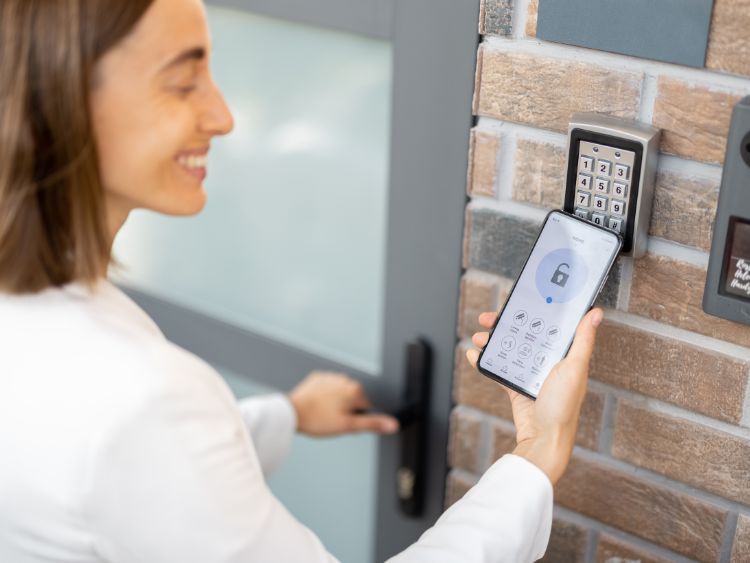In today’s fast-paced world, keeping your home safe is more important than ever. With the rise of smart home technology, wired home security cameras have become a staple in ensuring the safety of your property and loved ones. These cameras offer a reliable and stable connection, making them a preferred choice for many homeowners. So, why should you consider wired home security cameras over their wireless counterparts? Let’s dive into the details and explore everything you need to know about wired home security cameras.
What Are Wired Home Security Cameras?
Wired home security cameras are surveillance devices that connect directly to a recording device, such as a digital video recorder (DVR), using cables. These cameras are powered through the same cable that transmits the video signal, ensuring a continuous and reliable connection. Unlike wireless cameras that rely on Wi-Fi, wired cameras are less susceptible to interference and signal loss, making them a dependable option for home security.
Benefits of Wired Home Security Cameras
1. Reliability and Stability
Wired cameras provide a constant and stable connection, ensuring that your surveillance footage is always available when you need it. You won’t have to worry about signal drops or interference from other wireless devices.
2. High-Quality Video
Since wired cameras transmit data through a dedicated cable, they often deliver higher video quality compared to wireless cameras. This can be crucial in identifying faces, license plates, and other important details.
3. Unlimited Power Supply
Wired cameras are typically powered through the same cable that transmits the video signal, meaning they don’t rely on batteries. This ensures that your cameras are always operational, providing continuous surveillance without the need for regular battery replacements.
4. Enhanced Security
With wired connections, you reduce the risk of hacking and unauthorized access. Wireless signals can be intercepted, but a physical cable connection adds an extra layer of security to your surveillance system.
Types of Wired Home Security Cameras
1. Analog Cameras
Analog cameras are the traditional type of wired cameras that use coaxial cables to transmit video signals to a DVR. They are known for their simplicity and affordability.
2. IP Cameras
Internet Protocol (IP) cameras are a more advanced type of wired camera that uses Ethernet cables to transmit digital video signals to a network video recorder (NVR). They offer higher resolution and more features compared to analog cameras.
3. PTZ Cameras
Pan-Tilt-Zoom (PTZ) cameras can be controlled remotely to pan, tilt, and zoom, providing a wider field of view and more flexibility in monitoring large areas. They are often used in combination with fixed cameras for comprehensive coverage.
Installation of Wired Home Security Cameras
1. Planning Your System
Before installing your wired home security cameras, it’s essential to plan your system. Determine the areas you want to monitor, the number of cameras needed, and the type of cameras that best suit your needs.
2. Running Cables
Running cables can be the most challenging part of installing wired cameras. You’ll need to route the cables from each camera to the recording device, ensuring they are hidden and protected from damage. This may involve drilling holes and running cables through walls or ceilings.
3. Connecting Cameras to the DVR/NVR
Once the cables are in place, connect each camera to the DVR or NVR. Ensure that the connections are secure and that the power supply is stable.
4. Configuring Your System
After connecting the cameras, you’ll need to configure your system. This includes setting up the recording schedules, configuring motion detection, and adjusting camera settings to optimize video quality.
Wired vs. Wireless Home Security Cameras
Reliability
Wired cameras offer more reliability compared to wireless cameras, as they are not affected by Wi-Fi interference or signal loss.
Installation
Wireless cameras are easier to install, as they don’t require running cables. However, wired cameras provide a more stable connection and are less prone to hacking.
Maintenance
Wireless cameras may require regular battery replacements, while wired cameras are powered through the cable, providing continuous operation.
Frequently Asked Questions (FAQs)
1. Are wired home security cameras difficult to install?
While the installation of wired cameras can be more complex due to running cables, many systems come with detailed instructions. Professional installation is also an option if you’re not comfortable with DIY projects.
2. Can wired home security cameras be hacked?
Wired cameras are generally more secure than wireless cameras because they don’t transmit data over the air. However, it’s still essential to ensure your recording device and network are secure.
3. Do wired cameras work during a power outage?
Most wired cameras rely on a continuous power supply. To ensure they work during a power outage, consider using an uninterruptible power supply (UPS) to keep your system running.
4. How long do wired home security cameras last?
Wired home security cameras are built to last and can function for many years with proper maintenance. Regularly check and clean the cameras to ensure optimal performance.
5. Can I mix wired and wireless cameras in my security system?
Yes, many modern security systems allow you to integrate both wired and wireless cameras. This can provide the benefits of both types, offering flexibility in installation and reliability.
Conclusion
Wired home security cameras offer a reliable, stable, and secure way to monitor your property. While the installation process may be more involved compared to wireless cameras, the benefits of higher video quality, continuous power supply, and enhanced security make them a worthwhile investment. Whether you’re looking to protect your home, monitor your business, or keep an eye on your property while you’re away, wired home security cameras provide peace of mind and a sense of security.
